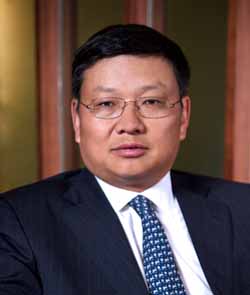
With the onset of the financial crisis, the Washington Consensus has been effectively obliterated. The talk of the “end of history” has ceased. In the aftermath of this systemic meltdown, we need a new paradigm, a new framework for the way governments and businesses work together. China’s model, while not perfect, should be examined as an alternative to the failed Washington Consensus.
One of the first comparative advantages of the China model is its elite governance. The best and the brightest in China are drawn to government work, possibly for two reasons: China has a long tradition of sending its best students to government posts, and the potential power and influence one can wield as a government official in China is considerably greater than in Western countries.
Another strength of the China model is how government officials are promoted – they all are required to start at the bottom and work their way up. This gives officials both grassroots foundational experience with the potential to later have opportunities for high-level experience. The US, on the other hand, can produce “Reagan-style leaders,” i.e., an actor becomes president without having any grassroots level experience. This is impossible in China.
Perhaps China’s greatest advantage, however, is the centralization of power. When a massive infrastructure project needs to be completed, the central government can muster the resources to complete the task. If an earthquake or other natural disaster devastates a region, the government can quickly respond and rebuild.
But while it is obvious that there are things to be learned from China’s advantages, there are also shortfalls that ought not to be ignored.
For example, according to the World Bank, 1% of China’s population controls some 41% of the country’s wealth. China’s wealth redistribution mechanisms are clearly flawed, yet they are protected by powerful interests. That is why, while incorporating the obvious advantages of the model, we are in need of a system overhaul.
I believe the basis for this new system should be one of harmonious development and growth, while keeping in check “corporate government conspiracies”. Collusions between state and enterprise can be devastating to a country as it puts the value of profit-seeking above that of the societal good.
The challenges for the government under this new rubric are as follows: First, how to establish an outside check on government power that does not discourage political participation by the most talented members of society. Second, how to reduce the government’s role in resource distribution while still providing the conditions for social and class mobility. In this way, the “Chinese Dream” can become a reality like the American dream. Third, the government needs to establish a more inclusive system that provides basic needs like retirement funds, healthcare and education. Fourth, the government needs to seek social harmony without eliminating the conditions that create groundbreaking innovation. Japan, for example, has the lowest Gini Index of any developed nation. You could say Japan is ultra-harmonious. Yet the rigidity of the system that allows this harmony also stymies innovation and creativity. It is hard to see them producing a Google or Facebook.
Enterprises must also play their par t in forming a healthy corporate-government relationship. They must go beyond creating wealth and focus more on how to build great organizations while also contributing to the growth of the middle class. Entrepreneurs and businesspeople need to ask themselves deeper questions. Don’t just wonder, “How do we do business well?” but also “Why do we do business?” If entrepreneurs are only concerned with making money or becoming famous, all types of corporate misconduct will be widespread. In addition to the damage these actions have on our own country, it is important to realize that the perception of Chinese business ethics problems globally fans the flames of the “China threat theory”.
In order to maintain harmonious and sustainable development, humankind needs to redefine its relationship with nature. From the ancient Greeks to the Christians, Western philosophy has revolved around humanity – people were at its core and held the highest position. This concept has been one of the key reasons people have been the root cause of global climate change and environmental degradation.
The Chinese idea of “human and nature as one” could be used to reorient our value system vis-à-vis the environment. Therefore, I believe that as one of the major challenges facing us today, we need to meet climate change head on by completely realigning our values. We should adopt the notion of “human and nature as one” as part of our universal values.
This can only be done through a new alliance between corporations and governments – one that is based on jointly working to address major problems we are facing. This way, Chinese philosophy can make a great contribution to the world and usher in a new era of corporate government relations.